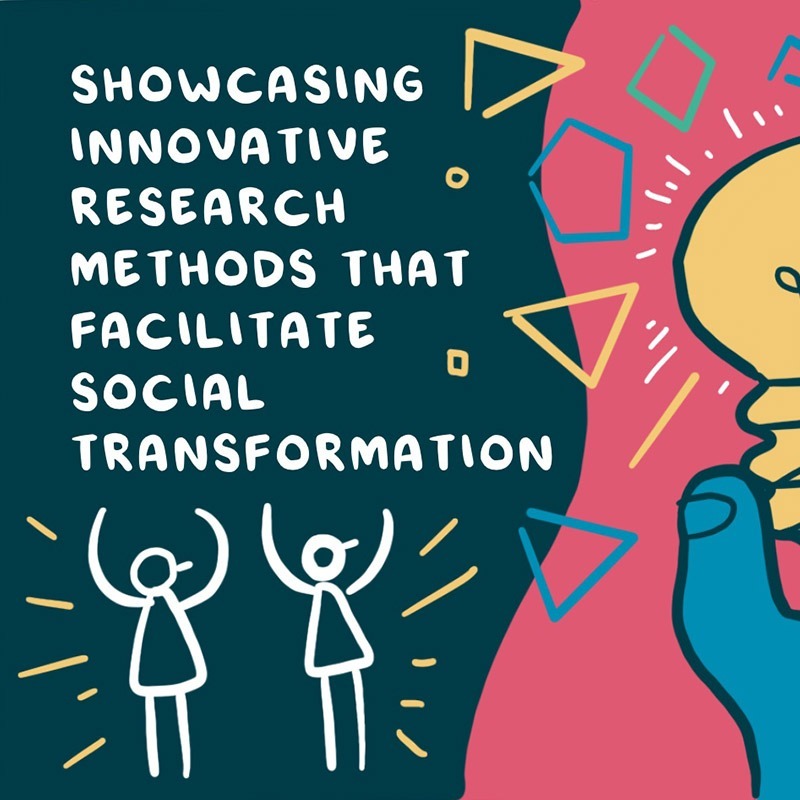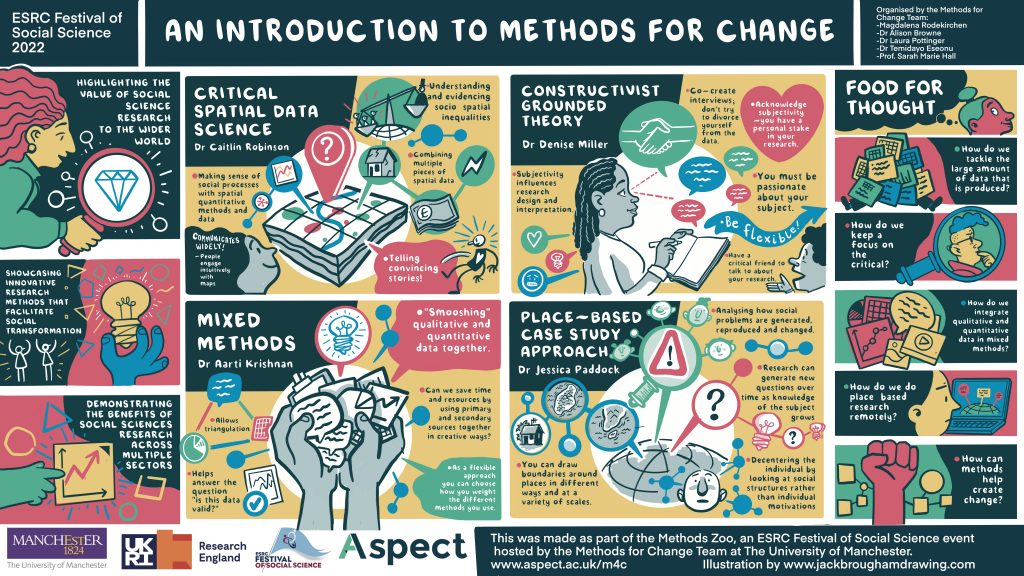
Magdalena Rodekirchen and Laura Pottinger
In November 2022 the Methods for Change team hosted two workshops as part of the ESRC Festival of Social Science focusing on spatial, critical qualitative, and mixed methods. These interactive sessions asked how social science methods could play a role in tackling social and environmental challenges and creating positive change in diverse social contexts. The events set out to cultivate dialogue between academics as well as policy makers, government advisors, businesses, charities, and NGOs including Natural England and Inspire Women Oldham. As well as hearing from the Methods for Change team and Phase 1 contributors, attendees were introduced to three new speakers and methods for Phase 2, each of which will be showcased in methods ‘how-to’ guides and creative pieces released via the Aspect online platform in the coming months.
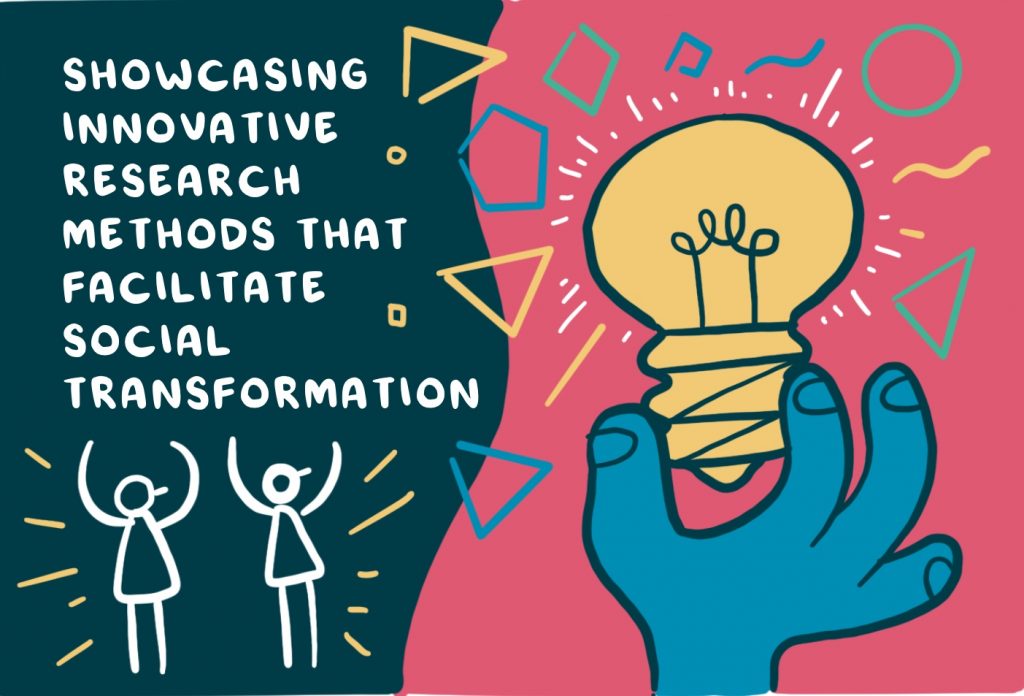
An introduction to Methods for Change resources
At the heart of Methods for Change lies an interest in how social change can be generated throughout the research process. While social scientists develop innovative research methods to better grasp social, cultural, ethical, environmental and legal issues that might otherwise go unnoticed or misunderstood, these methods rarely become visible beyond academia. And yet, social science methodologies offer much that could contribute to improving quality of life and wellbeing, as well as to imagining alternative futures in critical and important ways.
The exciting potential of social science methods formed the focus of the first of our ESRC Festival of Social Science sessions, chaired by Magdalena Rodekirchen. In an ‘Introduction to Methods for Change’, we explored four diverse methodological approaches with project contributors from the Aspect network.
With the example of Critical Spatial Data Science, Dr Caitlin Robinson from the University of Bristol explained how new knowledge can be generated through the analysis of quantitative data with some form of spatial identifier such as a street name or a census block. As a critical approach to analysis, this method is particularly useful to explore and evidence socio-spatial inequalities, in health or education, for example. This approach is well suited to shedding light on the dynamics of populations and societies across space and time.
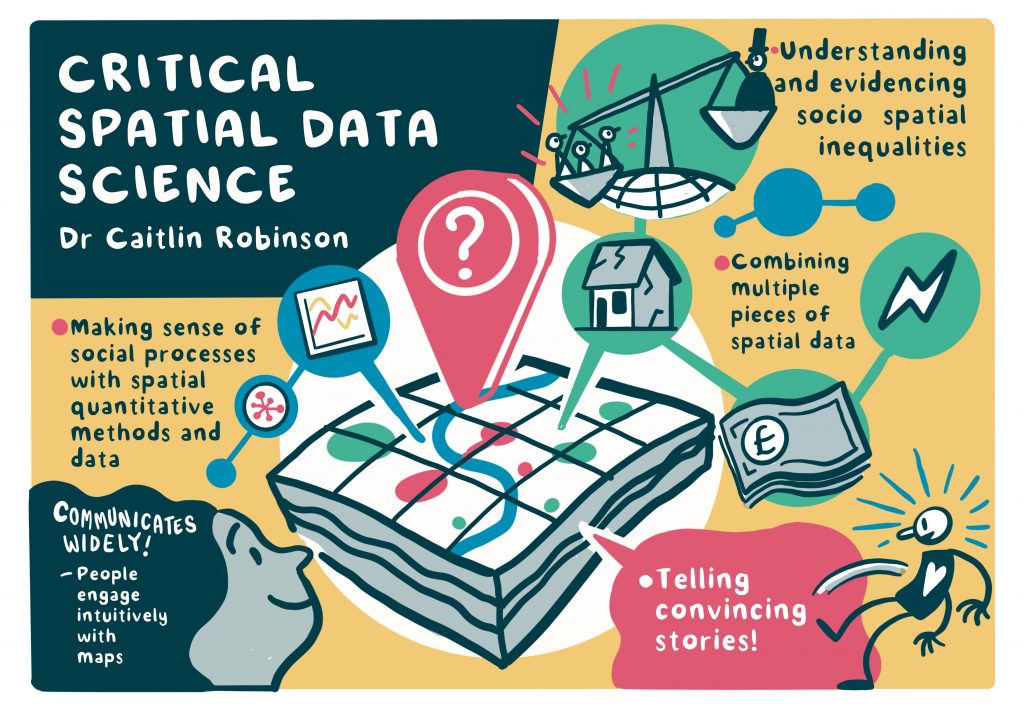
Dr Aarti Krishnan from the University of Manchester introduced Mixed Methods, an approach that uses at least one form of both quantitative and qualitative methods. A key strength of mixed methods is that this approach can allow the researcher to answer questions that solely qualitative or quantitative projects might struggle to answer on their own. Another advantage is the strong potential for triangulation, since mixed methods allow for the integration of multiple data sets and views. As a flexible approach the researcher can decide how to weight the different methods that are used.
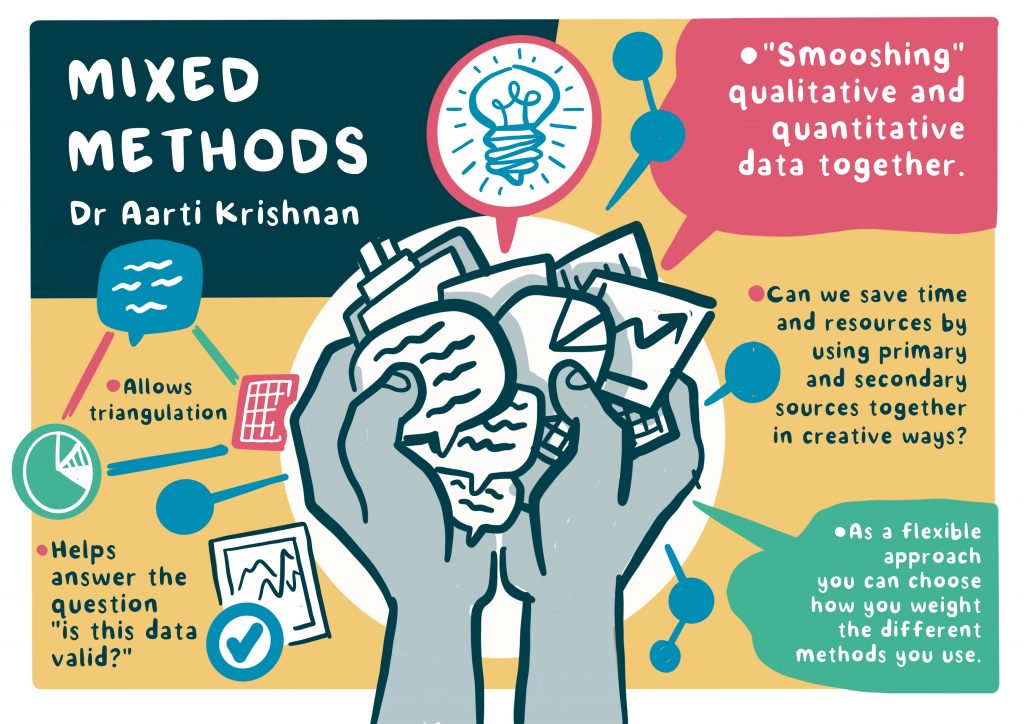
Dr Denise Miller, based at the University of Greenwich, gave another example of a critical method, this time a qualitative one: Constructivist Grounded Theory. This method is particularly suited when there is still little known about a phenomenon. One of its outstanding features is that this method embraces the idea of subjective reality, meaning that the attitudes and believes of a researcher can influence their research process. Through a transparent reflexive approach, this is turned into one of the strengths of this method.
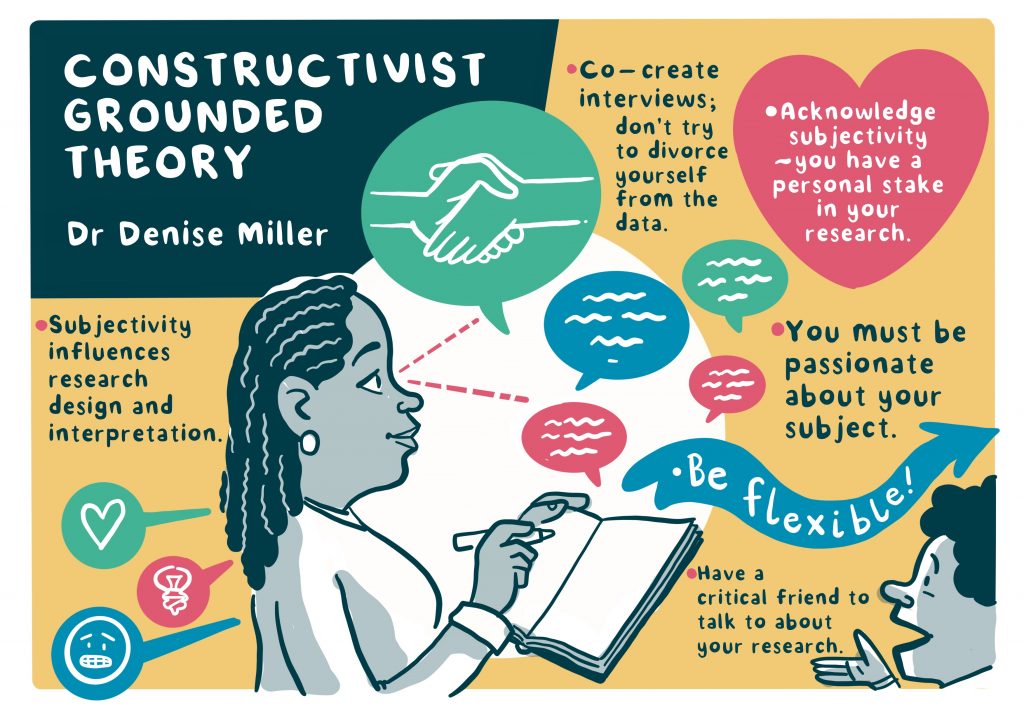
Dr Jessica Paddock, a contributor from Phase 1 of the project from the University of Bristol, spoke about her work drawing on A Place-based Case Study Approach. Here, detailed understandings can be generated by developing a case study iteratively using the conceptual lens of ‘place’. Different types of place, at a range of different scales can form the focus of the study – an organisation, a local authority, or an island, for example. This methodological approach can help researchers to ask how social problems are generated, reproduced and changed, and to focus on structures rather than individual motivations.
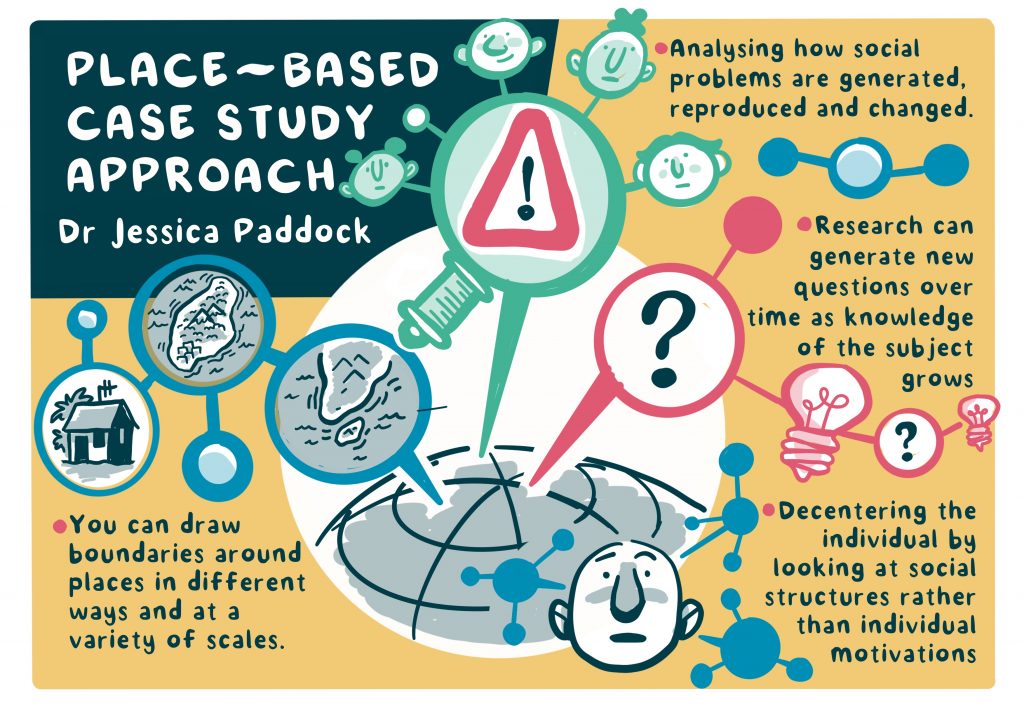
Lively discussion followed the presentations, involving interesting reflections from both civil society and governmental organisations, who shared their experiences of using different methods. The panellists touched on some of the challenges of conducting research, such as when trying to integrate quantitative and qualitative data or working with large data sets. The discussion revealed that these research processes take time and careful planning, and it is important to reflect on the story that a method can help researchers and organisations to tell.
Creative Methods Zoo
Next, in the ‘Creative Methods Zoo’ the Methods for Change team led an online networking event aimed at social science researchers across sectors, as well as members of the public interested in finding out more about social science methods. Here, we encouraged participants to think in advance about a method used in their research or work, and to consider the question: “If your research method were an animal, what would it be?”.
This creative exercise, chaired by Dr Laura Pottinger, builds on a technique we have used across the Methods for Change project in both workshop discussions and in research interviews. And, while at first glance this might seem like a strange prompt, it has proven to be a fruitful, fun, and engaging way to think creatively about methods.
For example, we asked participants to tell us about their animal/method’s key characteristics and how it interacts with its environment, with materials and with other creatures. This prompted some fascinating metaphorical thinking and discussion. For example, archival research was likened by one participant to a whale, spending time in the murky depths and grappling with ethical issues of how to resurface. And in a different depiction of ‘deep hanging out’, ethnographic research was compared with a sloth, capable of seeing things from new angles from its position suspended in the trees, and moving so slowly that algae begins to grow on its fur.
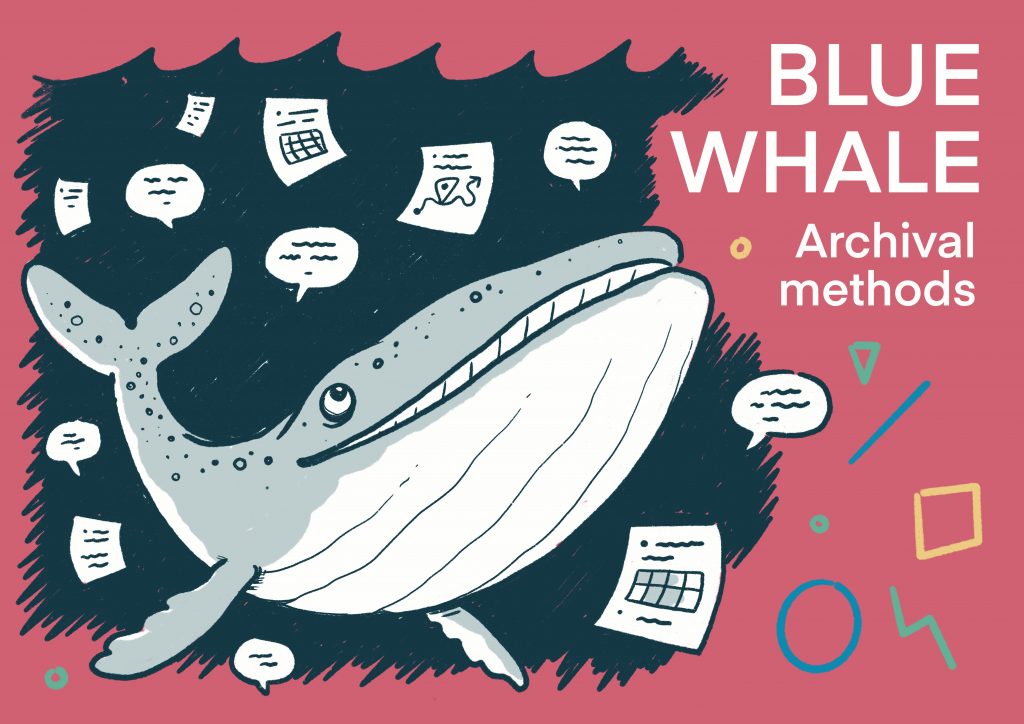
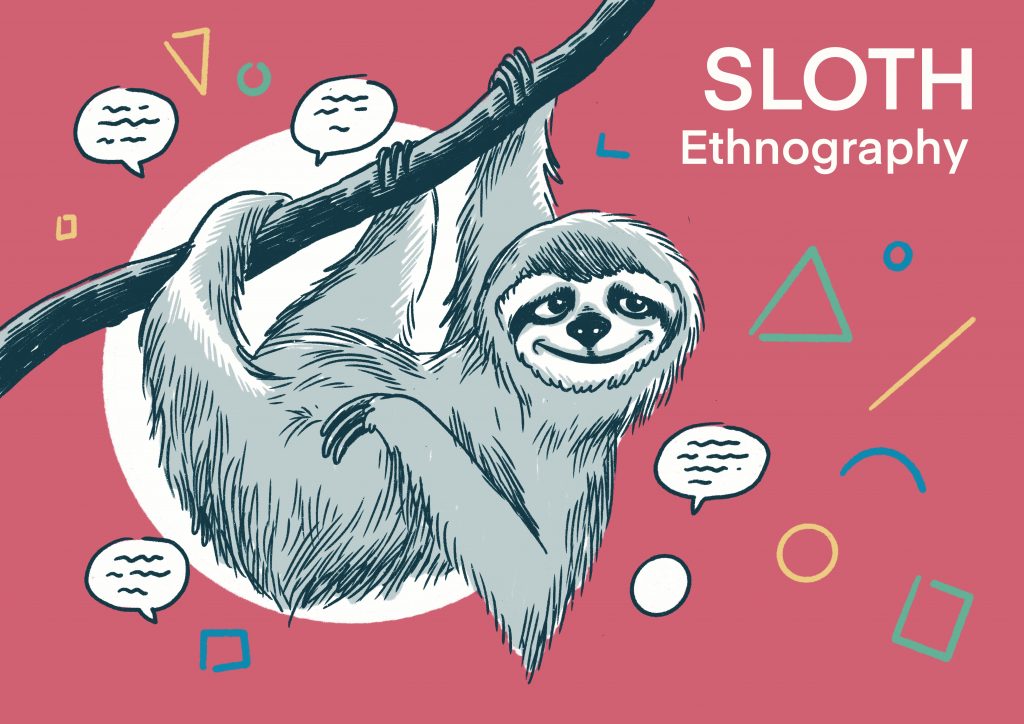
The animals that featured in this participatory session were visualised by illustrator Jack Brougham and shared with participants after the event.
Across our research, we’ve found the methods-as-animals technique particularly useful for thinking through the embodied and affective qualities of research methods – what do methods do, and how do they feel? The method-animals we’ve discussed in various different contexts have helped us, along with participants, to think in more detail about how methods act in the world, and how we can creatively communicate social science research methods across different sectors.
What’s next for Methods for Change?
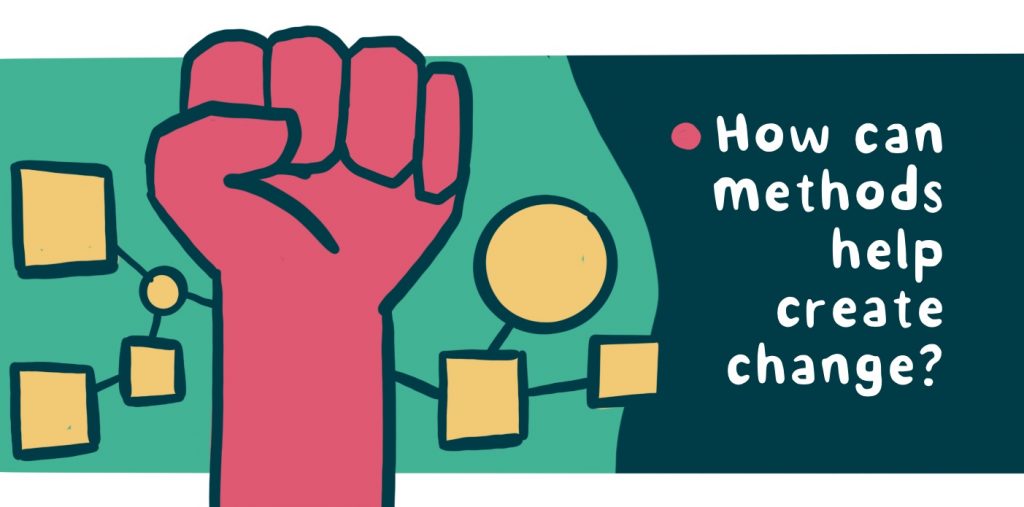
Since 2020, the Methods for Change team has been working collaboratively to raise awareness of this richness and potential of social science methods beyond academia. Our team is particularly interested in better understanding how change takes place at various stages of the research processes and how to harness the role and potential of methodologies, method, and research design for social transformation. In doing so, we contribute to growing calls to recognise how methods themselves can elicit change. This constitutes a shift in perspective: where impact is often imagined as happening after the publication of results and outputs, Methods for Change draws attention to the ‘doing’ of research as a space for change and transformation.
During Phase 1 of the project, the team worked with over 30 academics from across the Aspect network, learning about a range of creative and participatory social science methods and approaches, such as Life Mapping, Ketso, Social Practice Art as Research, Elliptical Methodologies, and Open Interviews to name a few. Moving into Phase 2, we continue to forge meaningful and impactful connections across academia, charities, NGOs and businesses. In 2023, a new range of innovative and exciting methods including Facet Methodology, Making Textiles Together, Militant Research, and Pop-up Mass Elicitation and many more will be profiled. Each new method will be explained in an accessible written ‘how-to’ guide and accompanying creative piece – watch this space!
Methods for Change is a UKRI/Research England, ASPECT Network funded project led by the University of Manchester.
Find out more about Methods for Change here.
